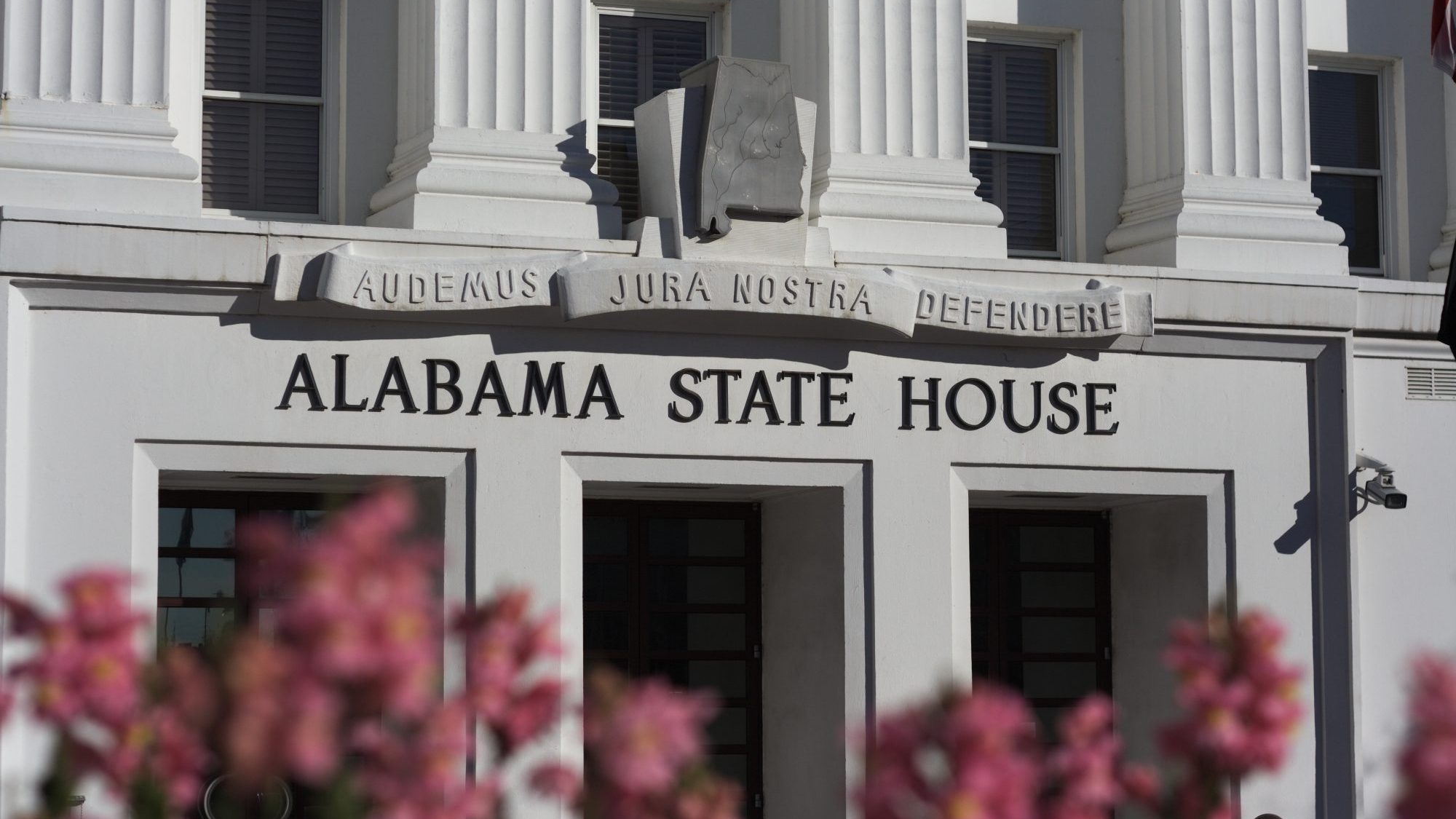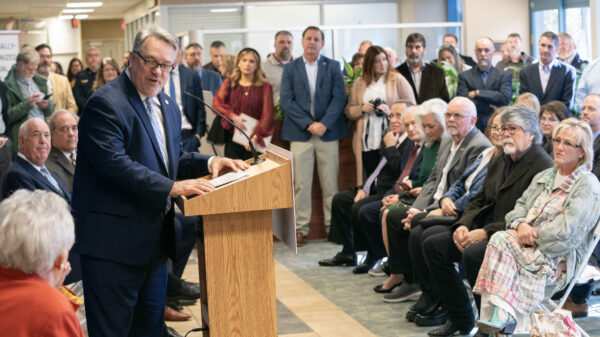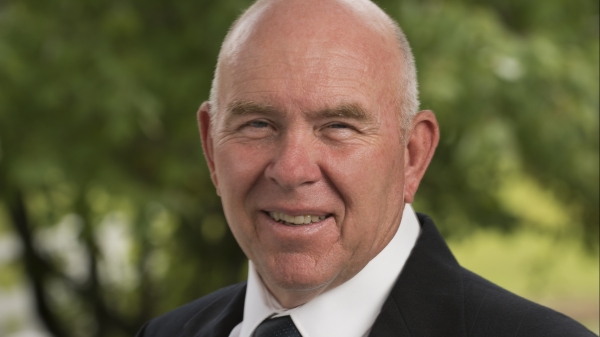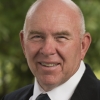Wednesday, the Senate County and Local Government Committee gave a favorable report on a bill allowing Jackson County voters to decide whether or not human waste solids can be applied to field in the county.
House Bill 183, which has already passed the House of Representatives is sponsored by State Representative Tommy Hanes, R-Scottsboro. The legislation is being carried in the Senate by Sen. Steve Livingston, R-Scottsboro.
The Senate County and Local Government Committee is chaired by Senator Paul Sanford, R-Huntsville.
Hanes said that what I have here to do is a constitutional amendment allowing Jackson County voters to decide whether or not human biosolids can be spread through land application in Jackson County or not.
Hanes said that landowners in the county are receiving biosolids from the Chattanooga Sewer system. The crop farmers are plowing it in to their fields; but the cattle farmers are spreading it on their pastures as fertilizer and just letting it lie there.
Hanes said that he asked ADEM (Alabama Department of Environmental Management) Commissioner Barnett Lawley to test the water in Flat Rock Creek. Barnett called him back and that there was a serious problem with really high levels of E. Coli. in that test. Flat Rock Creek flows in to the Tennessee River. Denali are the people hauling it into the county.
Following that test, they stopped transporting it to this one farmer, but they still are spreading it in the valley right up to the banks of the Tennessee River. Not only is it getting in the river, residents are worried that it can get in the ground water. They are asking if it can get in the beef and the milk. What they are doing is they are saving landfill space in Chattanooga.
State Senator Clyde Chambliss, R-Prattville, asked, “So there are no waste water treatment in Jackson County doing land application?” Why is this not handled as a local bill
Hanes said No. that the bill has statewide application because it is an environmental issue.
Senator Bill Holtzclaw, R-Madison, said, “This has been voted on in other counties.”
Hanes said, “This bill is based on the Lawrence County bill.”
Barbara Hollings, who is from Flatrock, Alabama, said, “The human waste solids are spread several times a year on fields new my home. It takes a good long time for the smell to go away. They have spread it just before heavy rains which they aren’t supposed to do. It has washed it down hill to neighbor’s ponds. Denali has not followed the regulations and has not done near what they were supposed to do. I started making calls to ADEM in 2015 and nobody ever came out to see what I was talking about.”
“The landowners don’t care. They are saving money (on fertilizer),” Hollings continued. “This is not just human waste it is everything that goes to a sewage treatment plant including industrial waste and it is concentrated waste including PCBs. Three countiels have already been allowed to vote on it. I have lived there in Flat Rock all my life and I am 70 years old.”
“My parents for 50 years and my family over 100 years,” Tammy Clark said. “Now there is an overpowering stench. Not only is there the pungent smell of human solid waste there are also unnatural swarms of flies when they spread the solids. Children at the local Flat Rock elementary school are also confined to the school. For people with asthma the smell can cause asthmatic attacks. Human biosolid use is not a new issue. Jefferson and Walker County have had this shipped in from other states. “Alabama is becoming a dumping grounds for other states. Colbert Franklin and Lawrence Counties have already voted to ban this. “Let Jackson County have their voices heard.”
No one from the Chattanooga Waterworks, Denali, or the farmers the spread the biosolids on their fields were at the hearing.
Buddy Morgan is the general manager of the Montgomery Waterworks said, “I don’t like where this is headed. We land apply on 1000 acres and have another 2000 acres. We sell 50,000 bales of hay that is only fed to a ruminant stomach animal, cows. If we can’t dispose of them we need to put them in a little baggy and send them to you, where it came from. ADEM has no jurisdiction over this. This is something EPA kept.”
Morgan said that the bigger cities are going to have the bigger plants.
“We are fortunate that we have land available,” Morgan said. “When we started we were hauling it to farmers, but many of them would not plow it in to the ground so we acquired our own land. There is a lot of fecal coliform out there. It can come from hog farms, wildlife, chicken farms, feedlots.”
“It smells like money to me,” Morgan said. “You are supposed to plow it in 3 days after it is applied which we do.”
Senator Bill Holtzclaw asked, “So Chattanooga creates it and then has no responsibility?”
Morgan said, “Chattanooga might have a 503 permit. I can’t understand why Chattanooga is allowed to do that. Somebody needs to check the 503 permit. Twenty-seven years we stopped it because the farmers were not cooperating. We own the land and it has worked out great.”
Brandon Clark said, “I am a native of Jackson County and a landowner. Flat Rock Creek flows through my property. The creek is 34 feet wide and 10 feet deep and sometime this has foamed three foot deep after an application. There is an odor for weeks sometimes a month at a time following an application. We can’t enjoy our own property. Families can not enjoy their pools. There are no more outside weddings. Jefferson County has had a similar issue they were trucking it in on railroads from New York New York are going to stop that. The county government can not do it because it is outside of their enforcable rights. Please allow Jackson County the right to vote on this as three other counties have.”
Russell Kelly was there from ADEM. Kelly said, “We do manage a lot of land application in other products We do not do biosolids that is an EPA program, We do investigate the complaints; though we don’t have any authority over that. We can step in if there is a violation of the clean water act. We have made several inspections.”
Chambliss said that many small towns do this. This particular bill does not affect them; but I also hear from the citizens who have some real problems. This is not isolated. We need to do something as a state.
Holtzclaw said, “That foaming frothing concerns me.”
Kelly said, “There has not been a high enough level to have a violation under the Clean Water Act.”
Sanford said, “ I am concerned that the state of Alabama is allowing this to come here without being able to do something about this. What I heard here today makes me want to get more information from ADEM and talk to EPA personally before voting on this. I would like to get more specifics from ADEM about what they can do and what they can’t do.”
Holtzclaw said that it is understanding that the Senate would meet three more days for the rest of this session.
Hanes said, “I think the people of Jackson County should get to vote on this and not have to suffer through this another year. I could have brought a ban bill. I am making a plea to you to let my people have the same opportunity as people in other counties had had.”
Sanford said, “I am going to let you vote today; but there are some questions that I still have on this.”
Sen. Jabo Waggoner, R-Vestavia, made a motion to give the bill a favorable report.
The committee approved the motion to give favorable report unanimously.



















































